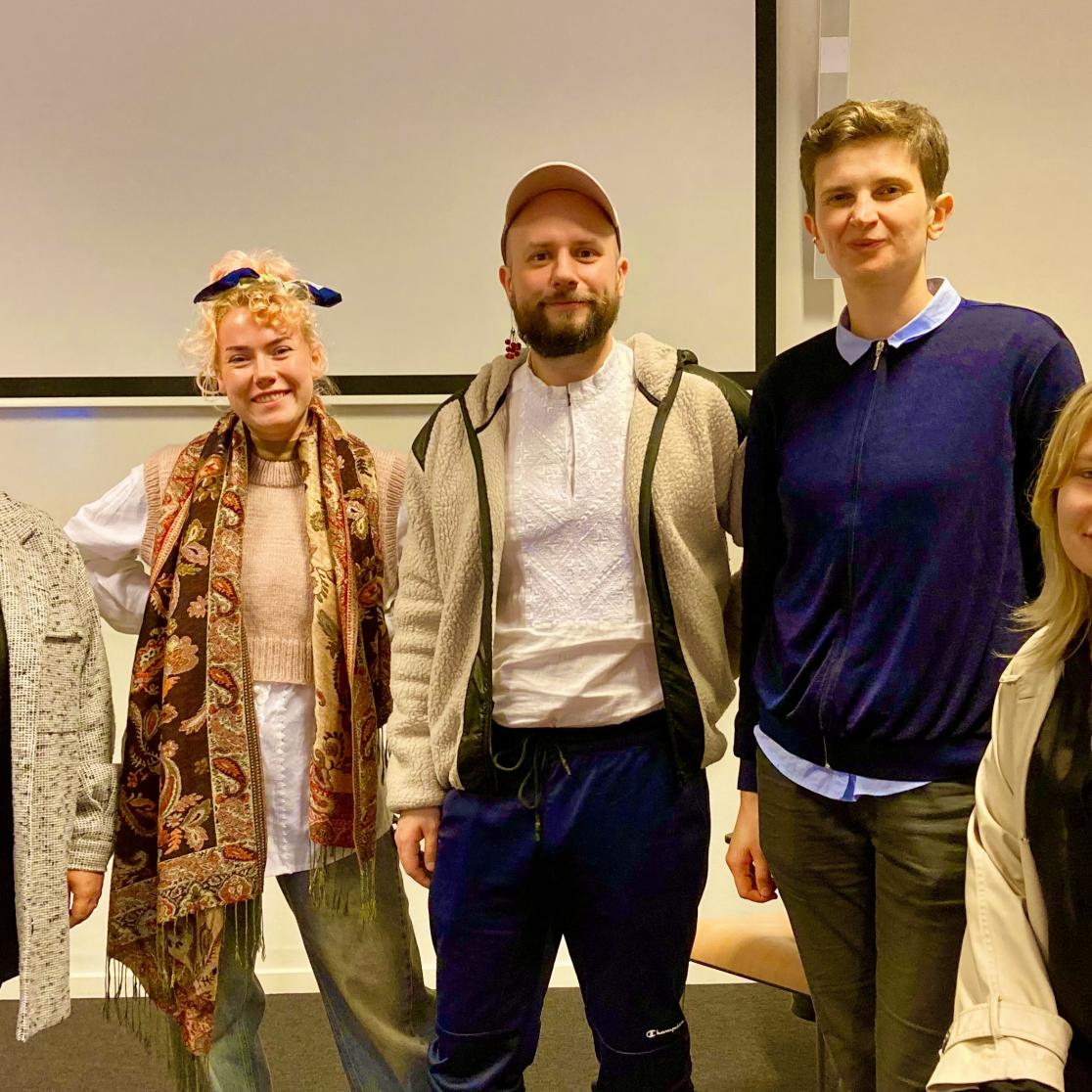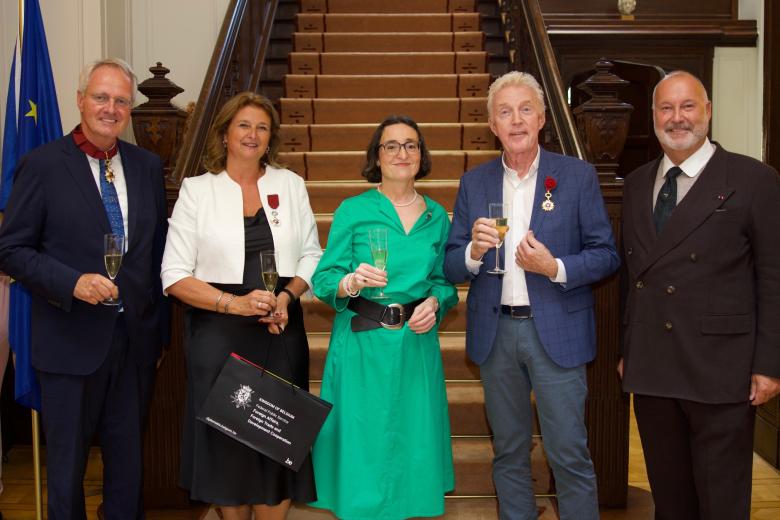History of the fight for LGBTQ+ rights in Ukraine through art and activism
On Thursday 20 April 2023, the Centre for Gender and Diversity hosted a symposium with lectures and film screenings from four Ukrainian queer artists, researchers and filmmakers who were discussing what it takes to be Ukrainian, queer, and free. It was organized by the first FASoS Soteria fellow, Maria Vtorushina, who is researching Ukrainian queer art history through a decolonial lens, and working as a curator. She is a CGD member during her yearlong fellowship (2023-2024), and this symposium is an important milestone in her research that aims to develop artistic programs and a lineage of Ukrainian queer art histories.
The symposium was dedicated to the visual history of LGBTQ+ artistic and activist movements in Ukraine. Homosexuality was decriminalized in Ukraine right after the fall of the Soviet empire, in December 1991, in the first months of Ukrainian independence. The removal of homosexuality from the list of psychiatric illnesses was stated in the ICD-10 Bulletin of the World Health Organization, published in 1992. However, the changes did not become visible immediately. It took more than ten years of activist, educational and cultural work to start a frank dialogue on the rights and lives of queer people in Ukraine.
The last decade has been the pivotal time for queer culture and LGBTQ+ community. The Revolution of Dignity in 2014 made the contemporary democratic society visible internationally. Russian aggression due to losing influence over Ukraine resulted in the occupation of Crimea and the following war. The beginning of the war in 2014 led to the further uprising of civic society in Ukraine; the activists within LGBTQ-community worked hard to make significant progress in legal recognition and social acceptance of Ukrainian queers.
Making queer art in Ukraine now is a political statement, sometimes dangerous, directed towards visibility, social critique, and gaining equal rights. During the symposium, the speakers discussed the history of Ukrainian queer art, gender and power relations, activist movements, raves as a form of protest, and queer archives. In her opening talk Maria Vtorushina provided a historical overview of queer Ukrainian art, then Svitlana Shymko gave a lecture on her research for the film The Wonderful Years (2018) that uses two modalities of archival footage (Soviet era films and home movies) to create a fictional story about the life of a Ukrainian lesbian, followed by a screening of this short acclaimed film.

Artist and researcher Anton Shebetko gave a talk on his published MA thesis “A Brief and Very Subjective History of Queer Ukraine,” and introduced us to the many sociological, collaborative, and sensitive artistic series he created about queer sex and anonymity/outness. The session closed with a screening of the award-winning documentary I Am Michelle (2020) by Olena Siyatovska about a young transgender woman from a Ukrainian village who is pursuing an international modeling career.
The very engaged audience included members of the CGD and the broader UM community as well as residents from the Jan van Eyck Academy.
Also read
-
Green light for UM participation in unique YUFE bachelor programme
The UM can start as a degree awarding partner in the new unique bachelor programme Urban Sustainability Studies offered by YUFE (Young Universities for the Future of Europe), an alliance of ten European universities. This week, the UM received a positive outcome of the macro due diligence assessment...

-
Professor Anouk Bollen-Vandenboorn appointed Knight in the Order of the Crown
Prof. Dr Anouk Bollen-Vandenboorn, Director of the Institute for Transnational and Euregional cross border cooperation and Mobility (ITEM) at the Faculty of Law, Maastricht University, was appointed Knight in the Order of the Crown on 3 July, during a formal ceremony at the Belgian Embassy in The...

-
Study Smart gets Dutch Education Premium
Maastricht University's (UM) interfaculty educational innovation project Study Smart is one of the three winners of the Dutch Education Premium 2025. This was announced on Tuesday during the Comenius festival in The Hague.
